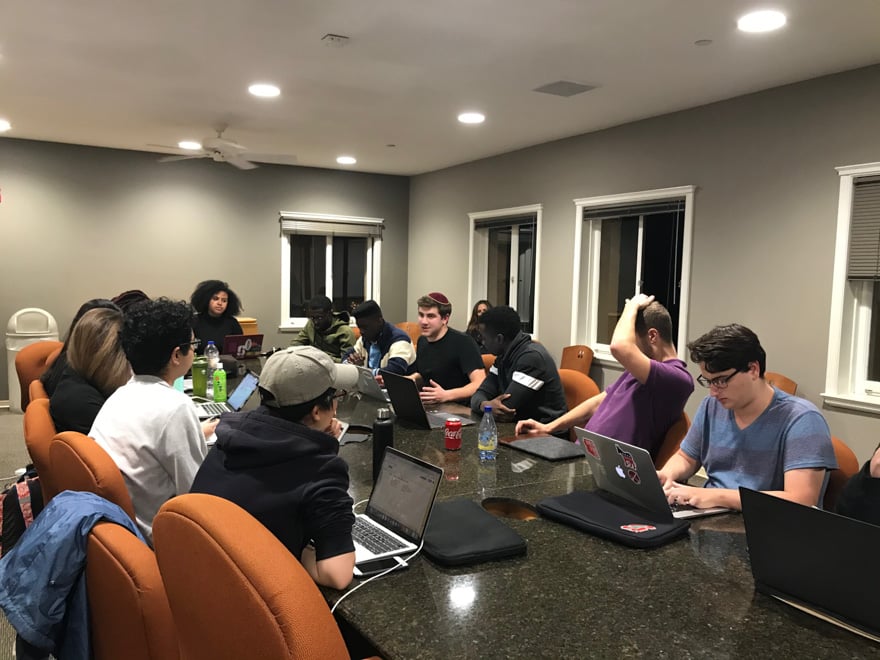On Tuesday, in its 12th meeting of the year, the 20th Undergraduate Senate passed a resolution to instate an alternative to the University’s Cardinal Conversations speaker series, which was designed to draw experts with diverse political views to campus. Senators also introduced a resolution to support transgender and gender-nonconforming students in light of the recent Trump memo indicating potential narrowing of the definition of gender.
Additionally, Associate Dean of Students and Director of the Office of Community Standards (OCS) Mark DiPerna discussed OCS’s mission and methods to increase student engagement and involvement.
The resolutions
Prior to voting, senators discussed the transition of the resolution to organize a new speaker series, called Deliberative Dinners, from a bill to a resolution. According to ASSU bylaws, resolutions are used to pass broader ideas and require more justification for their existence as well as unanimous support in order to pass. Alternatively, bills are used to propose programs that have yet to be established and require a majority in order to be passed.
“The only thing that changed … was that it was renamed to a resolution,” Senator Gabe Rosen ’19 said. “We already have shown this is an issue of interest. I don’t think that it’s necessarily the best precedent to set that we’re just going to pass something just because it was renamed on the spot, essentially.”
Despite these concerns, the resolution, introduced last week by Senator Matthew Wigler ’19 as a reaction to the controversy-plagued Cardinal Conversations series, was narrowly passed by a vote of six for and four against, with two abstentions.
Advocacy Committee Chair and Senator Tyra Nicolay ’21 also introduced a resolution to protect trans and gender-nonconforming students. Sponsored by the Medical Student Pride Alliance, the resolution was written by the Associated Students of Stanford University (ASSU) Advocacy Committee after Senator Melody Yang ’21 introduced the idea.
“We are pressuring the University to do more and be responsible to the commitment to protect and recognize students and faculty [in that] community,” Nicolay said of the resolution’s intention. “We want the University to act as a true ally and advocate for the communities that exist here on campus.”
Senator Michal Skreta ’21 questioned the resolution’s language and phrasing.
“When we write resolutions, we have to be as concise as possible and exhaustive,” he said.
The resolution will be considered and voted on at next week’s Senate meeting.
Community standards
Also at the meeting, DiPerna spoke to Senators about the mission of OCS and some of the specifics of the sanctioning process. The bulk of cases seen by the OCS relate to academic integrity, as, according to DiPerna, the mission statement of OCS is one of upholding integrity and accountability. As well as the investigation and sanctioning process for when violations occur, he also expressed an interest in rewarding good practices of the mission.
“We’ve thought about ‘can we have people get nominated for something that they did that had a lot of integrity, that was really honorable?’” he said.
DiPerna also addressed what he referred to as students’ ignorance on the specifics of sanctioning.
“These are things that people should know,” he said. “The standard sanction for a first time honor code violation is a one-quarter suspension and 40 hours of community service. If you go to a panel and you’re found responsible, that’s the standard sanction.”
Looking forward, DiPerna voiced interest in talking to students about OCS-related issues.
“I would love to hear from students … I’m very limited in what I can think of that you all want, so to hear from you and to work more with you all is something I’m looking forward to,” he said.
Contact Zora Ilunga-Reed at ‘zora814’ at stanford.edu.
